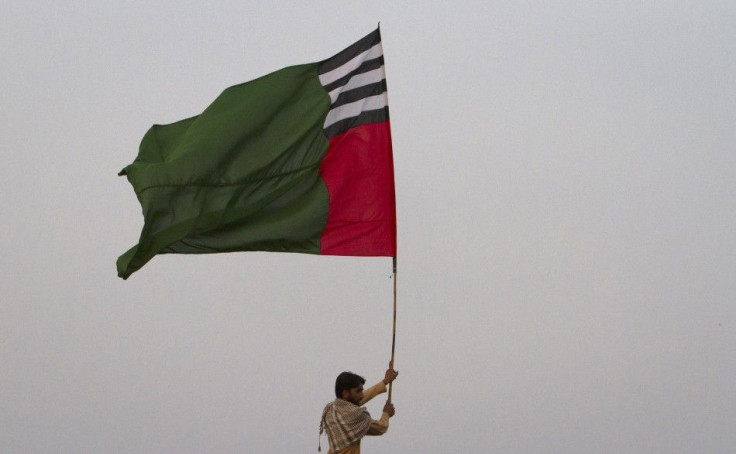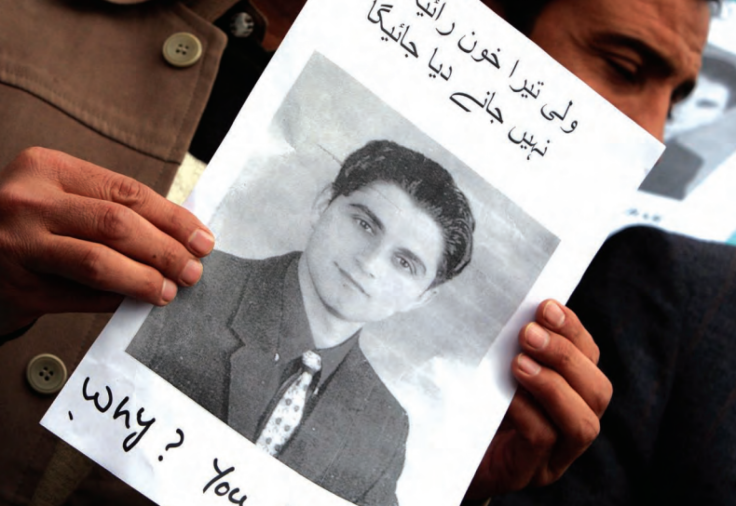Is Pakistan's Government Murdering Journalists?

Two weeks after the Pakistani government expelled New York Times Islamabad chief Declan Walsh, the Committee to Protect Journalists said local journalists face violence and, at times, murder as their killers enjoy impunity.
In a 51-page investigative report released Thursday, the press freedom group found that military or intelligence officials in the country routinely intimidate and threaten local journalists. And in at least two recent murders of journalists, government officials appear to have been involved in targeting them -- and the murders have added up on the timeline.
Forty-two journalists have been murdered for their work since 2003. Another 12 were killed in unclear circumstances. And 21 deaths remain unsolved, cold cases blowing in the wind.

“Government, military and intelligence officials are suspected of involvement in at least seven journalist murders in the past decade,” Bob Dietz, the group’s Asia program coordinator, said in a statement. “The newly elected government led by Nawaz Sharif has an opportunity to stem the murderous silencing of the press by implementing security mechanisms for the media and delivering justice in these killings.”
Wali Khan Babar, a correspondent for Geo TV, was tailed by a young man working for the prominent political party Muttahida Qaumi Movement, and then shot nearly a dozen times. He died on a busy street in Karachi in January 2011.
Mukarram Khan Aatif had been reporting from Pakistan’s tribal areas, where the Taliban is known to thrive and U.S. drones are known to strike. Working for Deewa Radio, a Pashto-language service backed by the U.S.-funded Voice of America, Aatif covered a deadly drone attack on a Pakistani army post, in which he reported that the Taliban was operating freely alongside the military.
In the weeks after, he faced threats from intelligence and military officials. Then, he was murdered.
Here’s how the CPJ recommends the newly elected government of Nawaz Sharif deals with Pakistan’s press problem:
1. Reopen and investigate the deaths of unsolved journalist murders
2. Publicly disclose findings of those investigations
3. Enact a statutory framework for the nation’s intelligence services
4. Adopt a journalist protection law, similar to the one passed in Mexico, which federalized the crime of killing a reporter
5. Cooperate with the U.N. Action Plan on Security of Journalist and the Issue of Impunity
In an interview earlier this month, after Walsh was forced to leave Pakistan on the eve of national elections, Dietz told the International Business Times that he was impressed with Pakistan’s press. He said it was “maturing” and remained aggressive toward those in power.
Fasih Ahmed, the editor of Newsweek Pakistan, told the IB Times that press freedom thrives in Pakistan.
“You’d be hard-pressed to make the case that there is oppression or lack of media freedom,” he said, adding that the pugnacious press often airs scurrilous attacks and works as a watchdog on power.
What he didn’t mention, however, is that it doesn’t matter how free the press is if there’s no one left to enjoy that freedom.
© Copyright IBTimes 2024. All rights reserved.






















